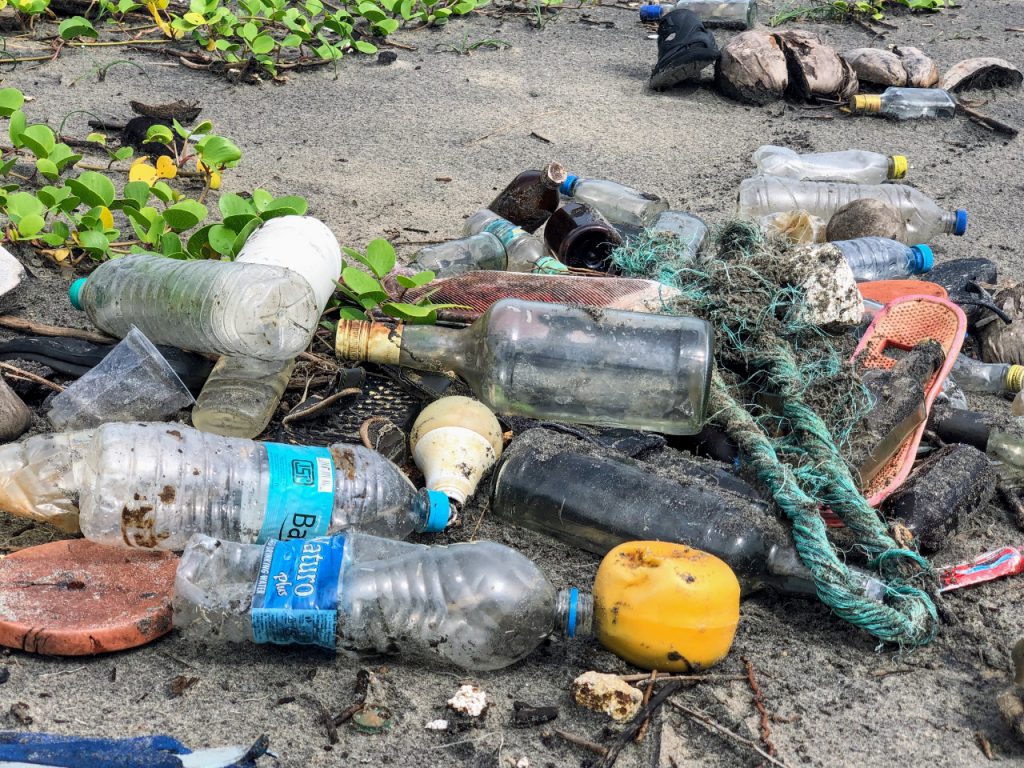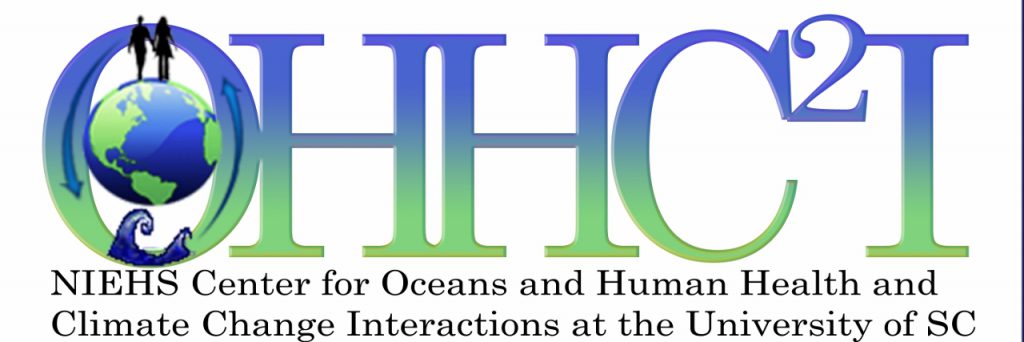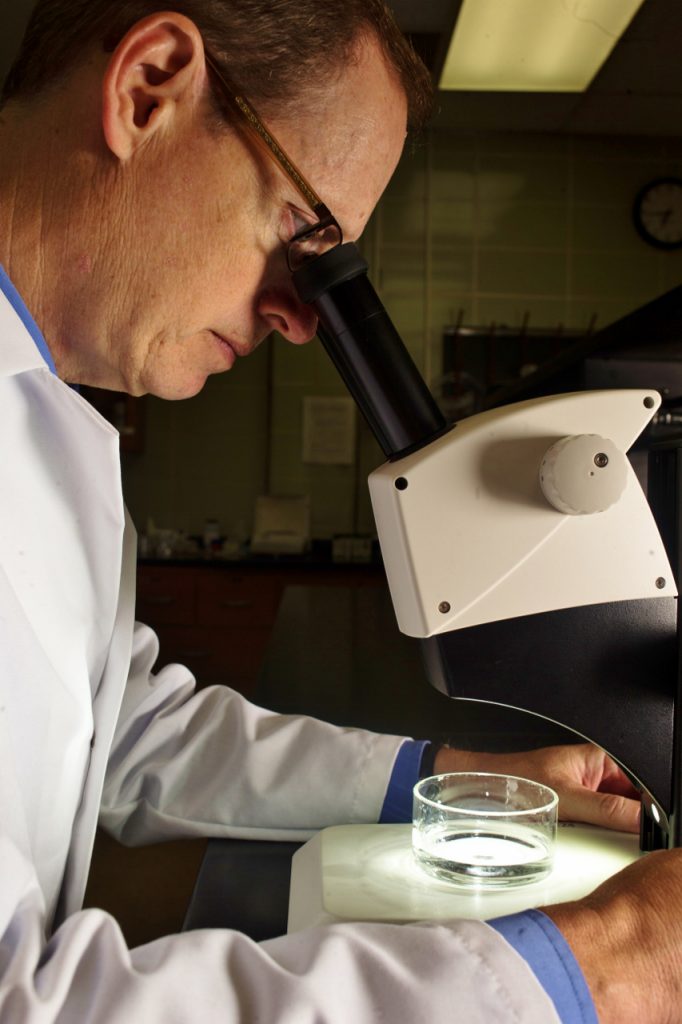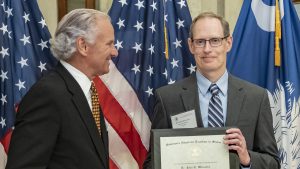
NIEHS-funded university collaboration aimed at discovering impacts to drive prevention
The first multi-academic institution center in South Carolina to study the effects of ocean health-related illness and the interactions from climate change is initializing its operations. Funded by a $5.7 million grant from the National Institute of Environmental Health Sciences (NIEHS), more than 20 researchers from five colleges and universities are beginning their work aimed at better protecting human health through the new Center for Oceans and Human Health and Climate Change Interactions.

The University of South Carolina, College of Charleston, The Citadel, Baylor University, and the University of Maryland Center for Environmental Science were awarded the NIEHS grant in the fall of 2018 for the center that is headquartered at the University of South Carolina’s (USC) Arnold School of Public Health, in Columbia. The Center will be led by Geoffrey I. Scott, clinical professor and chair in the USC Department of Environmental Health Sciences. The Center’s deputy director is Paul A. Sandifer, director of the Center for Coastal Environmental and Human Health at the College of Charleston. Scott and Sandifer will work with a team of scientists who are faculty leaders at all five institutions. Additionally, researchers and environmental public health practitioners from the National Oceanic and Atmospheric Administration, the U.S. Geological Survey, the Interstate Shellfish Sanitation Conference, and the Lowcountry Alliance for Model Communities will participate.
Working against time for everyone
The intersection of climate change and urbanization is nowhere more apparent than in the coastal zone, as increasing global temperatures, sea level rise, and coastal flooding meet growing population centers and economic hubs in coastal communities in South Carolina, the United States and the world.
Common coastal ecosystem problems include:
- Increased frequencies and severity of harmful algal blooms, water-based plants that can grow out of control and produce potent toxins that can impact human and animal health;
- Antibiotic resistance in disease-causing microbes such as Vibrio bacteria, that live in coastal waters and can cause harmful infections through the consumption of raw/under-cooked shellfish and wound infections;
- Contaminants of emerging concern such as microplastics in coastal waters resulting from trash and tire decomposition;
- Pharmaceutical and personal care product contamination from discharges into sewer systems including byproducts of human use, metabolism and disposal of expired medicines.
The Center’s main purpose will be to assess the effects of illness and disease related to ocean health, to then use the information to develop forecasts that prevent human exposure to these stressors, and other prevention strategies. In particular, the scientists aim to look at climate change-related factors that may enhance the presence of disease-causing Vibrio bacteria and harmful algal blooms, and their production of toxins that are harmful to fish, marine mammals and humans.
“Elevated levels of dangerous Vibrio bacteria and harmful algal blooms toxins can adversely affect human health by increasing human exposure in drinking water, seafood and in surface waters used for recreation,” said Scott. “By establishing predictive water quality and environmental variables, we can develop models and early warning forecasts to alert the public, prevent exposure and thus better protect ecosystem and human health.”
The Center’s scientists at work

The OHHCI scientists will work on different portions of the research simultaneously to maximize the results more efficiently. The USC team will assess impacts of increased exposure to climate stressors (rising temperatures and changing salinities) on associated diseases and illness, such as Vibrio bacteria in seafood and wound infections, and on harmful algal bloom toxin effects non-alcoholic fatty liver disease. These analyses will indicate the extent and magnitude that climate change may have on these illnesses under future climate scenarios. This will be used to better identify vulnerable populations and help tailor community-engagement activities for these susceptible communitieshttps://youtu.be/UTRwSlyEv6w.
“With coastal populations ever-increasing, the need for science to focus its attention towards mitigating and preventing the potential impacts of climate change on the health of its most-vulnerable citizens, has never been greater,” said Darin Zimmerman, Ph.D., dean and Traubert Chair for the Swain Family School of Science and Mathematics at The Citadel. “Tackling the complex problems that exist at the nexus of the climate-ocean-health environment – such as enhanced uptake of emerging contaminants within the food chain and increased exposure to water-borne pathogenic bacteria, requires the kind of collaborative, multi-disciplinary team of experts that will compose this Center.“
Co-investigators at USC include Sean Norman, Alan Decho, Jamie Lead, Saurabh Chatterjee, Shuo Xiao, Dwayne Porter (USC Environmental Health Sciences), Bo Cai (USC Epidemiology and Biostatistics), Daniela Friedman (USC Health Promotion, Education, and Behavior), and John Ferry, Tim Shaw, Susan Richardson (USC Chemistry). Drs. Bryan Brooks, Thad Scott, and Scott James of Baylor University will lead the research on Harmful Algal Blooms. Dr. John Weinstein of the Department of Biology at the Citadel will lead the research on the environmental health effects of microplastics. Dr. Heath Kelsey of the University of Maryland Center for Environmental Science will be part of the Center focused on community engagement, facilitating communication amongst the researchers and communities.
The Center is engaging in field and laboratory projects in South Carolina and Texas and will lead related community engagement through a variety of venues. For more information, please see the Center website at the Arnold School of Public Health website or contact the Center’s Office at 803-777-8940.

 Honoring The Citadel’s 2024 Palmetto Medal Award recipients
Honoring The Citadel’s 2024 Palmetto Medal Award recipients Remembering Citadel professor Paul Nolan
Remembering Citadel professor Paul Nolan Change-leading Citadel researcher and professor earns accolade from SC governor
Change-leading Citadel researcher and professor earns accolade from SC governor

